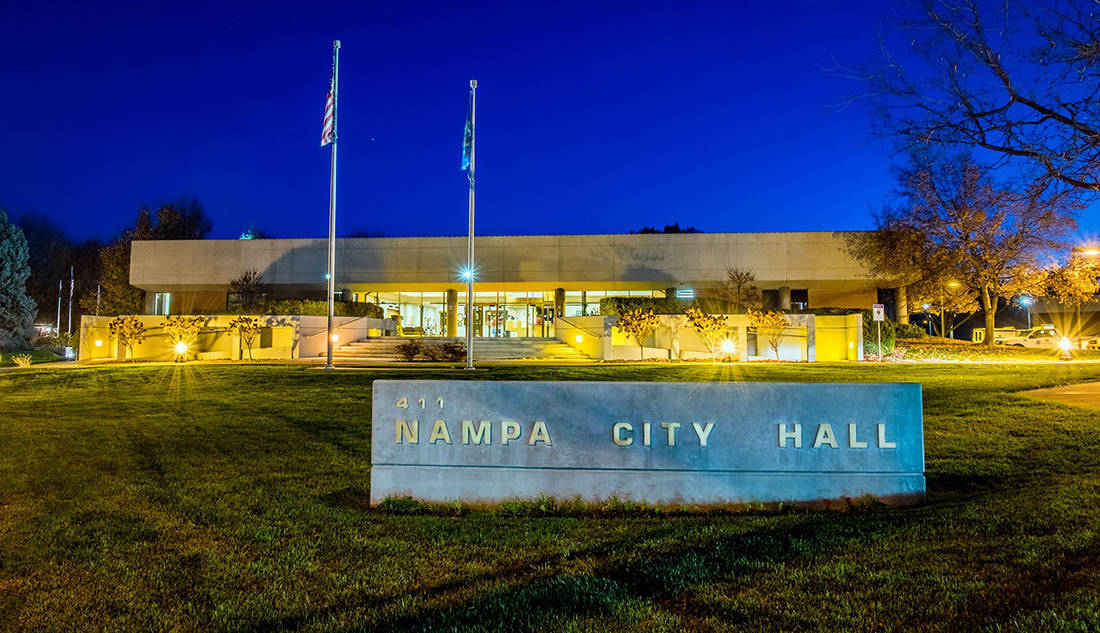


The end of September was the deadline to participate in Gov. Brad Little’s Public Safety Grant Initiative. If you are a resident of one of the Idaho cities or counties that did not sign up, you will not receive a substantial one-time property tax reduction.
The initiative is a one-time grant to use federal CARES Act funds to support the payroll costs of all local fire, police, and EMS services this fiscal year. It is designed to allow localities to pass those savings to taxpayers, who then would have enjoyed a 10 to 20% decrease in their property taxes for this fiscal year.
Among the most populous counties and cities in Idaho that did not participate were Canyon and Kootenai counties, as well as the cities of Caldwell and Post Falls.
One reason local governments that opted not to participate gave a common reason for not doing so: They were skeptical that the initiative was not within the bounds of the U.S. Department of Treasury guidelines regarding how to properly use CARES Act funds.
Initially, valid questions existed about the proper use of federal funds. However, since the initial Treasury guidance was released, the department repeatedly offered clarifications approving the use of funds in the manner prescribed by the governor's plan. These clarifications should have quelled local leader’s concerns.
So why would a public official deny their residents a one-time grant of federal funds despite repeated assurances by the federal government that this use of those funds was permissible?
While it is certainly possible that local officials were simply still not satisfied with Treasury guidance, given the clarity of that guidance, I wonder if there is more to their non-participation than just that.
For the sake of argument, let’s assume those skeptical of this initiative were right, that Little’s initiative was not in keeping with Treasury guidance, and that grant monies would have to be repaid at a later date. Local governments would simply have to return funds they wouldn’t have had in the first place. If that were to happen, they would either simply have to raise taxes in an amount they would have otherwise raised them, but not for receipt of CARES Act funds, or, they would have to cut future spending. That hardly seems like some sort of crazy gamble sufficient to refuse a grant resulting in property tax relief to Idahoans.
Is it possible, then, that those local leaders who chose not to participate weren’t so much concerned about the legality of the initiative as much as they were concerned about optics?
On September 17, 2020, Nampa City Finance Director Doug Racine told the Nampa city council that if Nampa were to participate in the initiative, “We could have a massive curve down and then a massive curve up.” That “massive curve” Racine referenced are resident’s tax bills.
Racine noted that Nampa home prices appreciated by 20% this year. He pointed out that if property values appreciated by 20% again next year, participation in the grant initiative could mean a reduction of roughly 20% in property taxes, which would negate most of the taxes normally paid for that appreciation this year. This could mean that next year, when there is no grant program, the two year increase in property appreciation equaling potentially 40%, half of which was not seen this year, would be seen all at once, rather than over a two year period, that is, if properties again appreciate 20% as they did the year prior. And that is one thing local politicians do not want to do: shock their constituents.
To its credit, despite those observations, Nampa decided to participate in the grant program.
In the case of Canyon County, the most populous county not to participate, its local officials decided not to raise their property tax rate this fiscal year. Oddly enough, in keeping with the grant’s condition that localities not raise property taxes in order to participate in the grant, all they had to do was formally apply in order for their residents to be able to enjoy a property tax reduction. Yet, they did not apply. Accordingly, since they were already forgoing tax increases, it can’t be said that the return of grant funds would have left them in a financial hole they otherwise would not have already been in.
All this to say, it is curious why so many local leaders chose not to give their citizens a tax break, especially in the case of Canyon County.
It’s certainly also conceivable that as a matter of principle many cities and counties didn’t want to receive such a grant from either the federal government or Gov. Little. Though this rationale is laudable in many respects, CARES Act funds had already been allocated to states: The funds are not going back to the federal government if not spent. Considering that, and considering there are few more direct and more immediately impactful ways to financially help Idahoans than lowering their taxes, it makes little sense that more cities and counties did not participate.
If I were a property owner in any one of the counties that chose not to give their residents property tax relief, I would be upset. I would wonder why my local leaders deliberately chose to not decrease my taxes when they had the opportunity to do so. In the meantime, residents of cities and counties not participating in this grant program should know that their property taxes should have been a lot lower this year.


